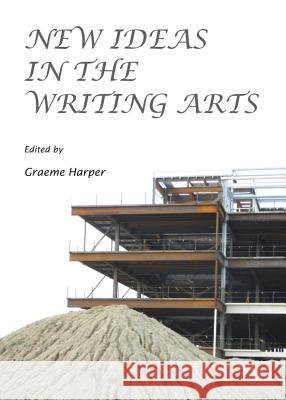New Ideas in the Writing Arts » książka
New Ideas in the Writing Arts
ISBN-13: 9781443849074 / Angielski / Twarda / 2013 / 180 str.
New Ideas in the Writing Arts has come about because recent changes taking place in educational settings have influenced the ways in which learners and teachers are exploring Creative Writing. The worldwide growth of Creative Writing as a formal subject of study in universities and colleges has generated explorations that appear now to be at the tip of an even greater range of explorations that promise to be undertaken in coming years. When titling this book, the intention was to say that we should consider what might currently be new, what might be explored, what might be introduced to a writer who has not thought of investigating certain aspects of Creative Writing or undertaking Creative Writing in a certain way. Such freshness can often produce a development in a writer's own work. Our 21st century development of research in Creative Writing undertaken by creative writers through writing practice and through a critical engagement with Creative Writing that begins in writing practice is already unearthing new ways of thinking about Creative Writing and new ways of undertaking it too. New Ideas in the Writing Arts presents explorations of Creative Writing fresh from explorers of Creative Writing who have incorporated into their work ideas discovered in creative practice and ideas explored critically because of creative practice. Readers will discover in the tone and trajectory of the chapters a serious engagement with how to determine current knowledge, how to confirm or challenge that knowledge, and broadly how to progress our knowledge of Creative Writing. Practical considerations prevail, and there is a clear sense in which Creative Writing is an activity, not a static thing to be examined in a fixed state and discussed as a completed object. Rather, Creative Writing in this book is a range of events and their results, a human activity that draws on many individual actions, cultural and historical contexts, and, in its undertaking, presents evidence that reflects on the knowledge and belief that informs and produces it.











